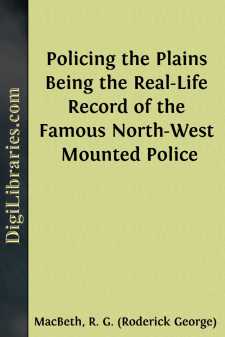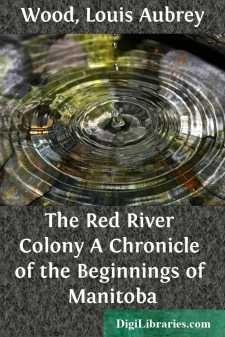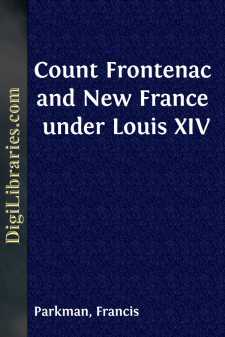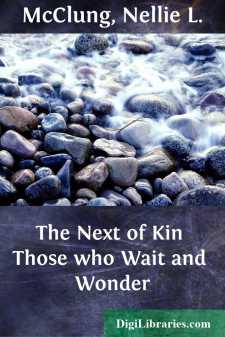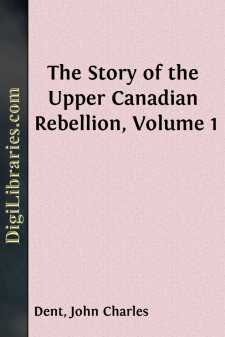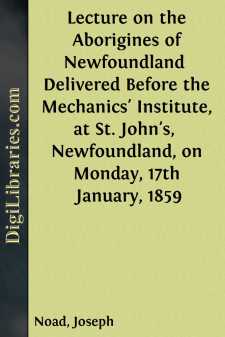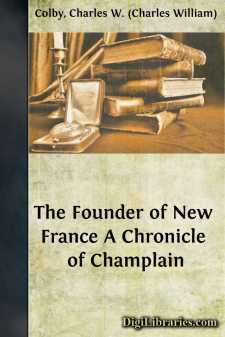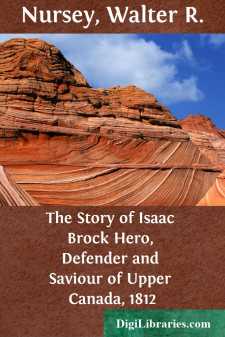History
- Africa 30
- Americas (North Central South West Indies) 50
- Ancient 68
- Asia 58
- Australia & New Zealand 8
- Canada
- Caribbean & West Indies 1
- Civilization 20
- Eastern Europe 12
- Europe 310
- Expeditions & Discoveries 60
- General 77
- Historical Geography 1
- Jewish 9
- Latin America 3
- Medieval 8
- Middle East 14
- Military 248
- Revolutionary 8
- Study & Teaching 5
- United States 353
- Western Europe 56
- World 13
Canada Books
Sort by:
About twelve years after the first Spanish caravel had touched the shores of North America, we find the French putting forth efforts to share in some of the results of the discovery. In the year 1504 some Basque, Breton and Norman fisher-folk had already commenced fishing along the bleak shores of Newfoundland and the contiguous banks for the cod in which this region is still so prolific. The Spanish...
more...
FOREWORD It is with great pleasure I accede to the request of Canon Scott to write a foreword to his book. I first heard of my friend and comrade after the second battle of Ypres when he accompanied his beloved Canadians to Bethune after their glorious stand in that poisonous gap—which in my own mind he immortalised in verse:—O England of our fathers, and England of our sons,Above the roar of...
more...
A GREAT TRADITION A few years ago I was away north of Edmonton on the trail of Alexander Mackenzie, fur trader and explorer, who a century and a quarter before had made the amazing journey from the prairies over the mountains to the Pacific Coast. We looked with something like awe and wonder at the site of the old fort near the famous Peace River Crossing, from which, after wintering there in 1792, he...
more...
ST MARY'S ISLE When the Ranger stole into the firth of Solway she carried an exultant crew. From the cliffs of Cumberland she might have been mistaken for a trading bark, lined and crusted by long travel. But she was something else, as the townsfolk of Whitehaven, on the north-west coast of England, had found it to their cost. Out of their harbour the Ranger had just emerged, leaving thirty guns...
more...
by:
Francis Parkman
PREFACE. The events recounted in this book group themselves in the main about a single figure, that of Count Frontenac, the most remarkable man who ever represented the crown of France in the New World. From strangely unpromising beginnings, he grew with every emergency, and rose equal to every crisis. His whole career was one of conflict, sometimes petty and personal, sometimes of momentous...
more...
CHAPTER IWhen a soldier's watch, with its luminous face,Loses its light and grows dim and black,He holds it out in the sun a spaceAnd the radiance all comes back;And that is the reason I'm thinking to-dayOf the glad days now long past;I am leaving my heart where the sunbeams play:I am trying to drive my fears away:I am charging my soul with a spirit gay,And hoping that it will last! We were...
more...
THE BANISHED BRITON. 1819I n the afternoon of a warm and sultry day, towards the close of one of the warmest and most sultry summers which Upper Canada has ever known, an extraordinary trial took place at the court-house in the old town of Niagara. The time was more than threescore years ago, when York was a place of insignificant proportions; when Hamilton could barely be said to have an existence;...
more...
by:
Joseph Noad
Of the various theories advanced on the origin of the North American Indians, none has been so entirely satisfactory as to command a general assent; and on this point many and different opinions are yet held. The late De Witt Clinton, Governor of the State of New York, a man who had given no slight consideration to subjects of this nature, maintained that they were of Tatar origin; others have thought...
more...
CHAPTER I CHAMPLAIN'S EARLY YEARS Were there a Who's Who in History its chronicle of Champlain's life and deeds would run as follows: Champlain, Samuel de. Explorer, geographer, and colonizer. Born in 1567 at Brouage, a village on the Bay of Biscay. Belonged by parentage to the lesser gentry of Saintonge. In boyhood became imbued with a love of the sea, but also served as a soldier in...
more...
by:
Walter R. Nursey
CHAPTER I. OUR HERO'S HOME—GUERNSEY. Off the coast of Brittany, where the Bay of Biscay fights the white horses of the North Sea, the Island of Guernsey rides at anchor. Its black and yellow, red and purple coast-line, summer and winter, is awash with surf, burying the protecting reefs in a smother of foam. Between these drowned ridges of despair, which warn the toilers of the sea of an...
more...




